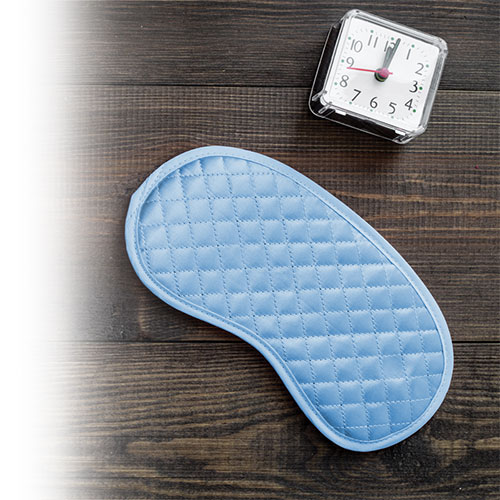Must you deal with the reality of night work? Find out how to maintain your well-being, quality of life, and health.
Night work and the biological clock
In Quebec, it is estimated that one third of permanent jobs are outside conventional work hours. Therefore, the notion of "9 to 5" is not everyone's reality. Some work sectors are known for the predominance of night or irregular shifts (shift work)—public protection, hospital and manufacturing sectors, road transportation, etc.
It has long since been shown that the body is not initially made to function during the hours of darkness or to sleep during daylight hours. A significant and deliberate change of wake/sleep periods, as observed in night workers, causes an imbalance of the work/rest cycle and the biological clock (called the circadian rhythm).
This internal clock regulates most of the rhythmic processes in the human organism—sleep structure, bodily functions, hormone production, alertness, body temperature, etc. Thus, sleep quality and wakefulness, among others, are significantly influenced by circadian rhythm.
Impact on health and well-being
Night or shift work can have repercussions on:
- sleep (quality and duration)
- alertness during waking hours
- cognitive and motor skills
- performance and productivity, and
- risk of a work accident
Therefore, it is not uncommon to observe the following symptoms:
- drowsiness
- insomnia or altered sleep
- constant fatigue
- concentration difficulties
- decreased energy
- mood swings, and
- stress or anxiety
While some individuals seem quite unaffected by an atypical work schedule, others are more vulnerable to it. Without effective corrective measures, these harmful effects can impact a person's family, social or professional life. Additionally, over time, night workers can develop certain physical health problems (digestive problems, sleep apnea, muscle pain, etc.).
Fortunately, adopting certain measures can help night workers to maintain their well-being, quality of life, and health.
Sleeping during the day
If you work at night, it is important to focus on personal health practices and on developing a routine. The first thing to do is to promote sleep quality, so you get as much restorative sleep as possible.
Here are a few tips to reach this goal:
- Make sure you get enough hours of sleep and sleep at regular hours.
- Make your surroundings conducive to sleep (absence of light and noise, appropriate temperature, comfortable bed, etc.).
- Before going to bed, avoid stimulants such as caffeine, exercise, electronic devices, loud music, etc.
- Instead, opt for soothing activities—reading, yoga, meditation, soft music, etc.
- To reduce ambient noise, use ear plugs or background noise, such as a fan.
Sedatives
To make daytime sleep easier, it may be tempting to take medication, natural products or other substances. Although this may sometimes be helpful, it should not be considered as your first option. Healthy personal practices should always be your first choice.
There are products available at the pharmacy to help with sleep difficulties. The ones sold over-the-counter are called "sleep aids". These products often contain diphenhydramine, an antihistamine known for its sedative properties. Before considering to take medication, always seek the advice of your pharmacist to ensure that the product is appropriate for you.
Melatonin is among the agents that have shown their significant effectiveness for wake/rest circadian rhythm-related problems like the ones experienced by night or rotating shift workers. Good things have also been said about various natural products, like the ones that contain valerian or passion flower, to help you sleep.
Medication can be prescribed for a severe sleeping problem. Your pharmacist can provide information about the options available and offer advice.
Some additional advice for night workers
- During shift work, avoid taking artificial stimulants intended to make you more alert or awake (i.e. products containing caffeine).
- When possible, take a nap or rest before the start of your shift, for example.
- Maintain a healthy lifestyle.
- Eat well.
- Exercise regularly.
- Maintain a healthy weight.
- Abstain from smoking.
- Drink alcohol with moderation.
- Manage your stress.
- Make the people around you aware of the challenges of night work. Ask them for their help, cooperation, and respect regarding certain conditions (i.e. avoiding making noise when you are sleeping).
Pharmacists are always there to help you with any well-being and health-related questions. Ask your pharmacist for advice!
